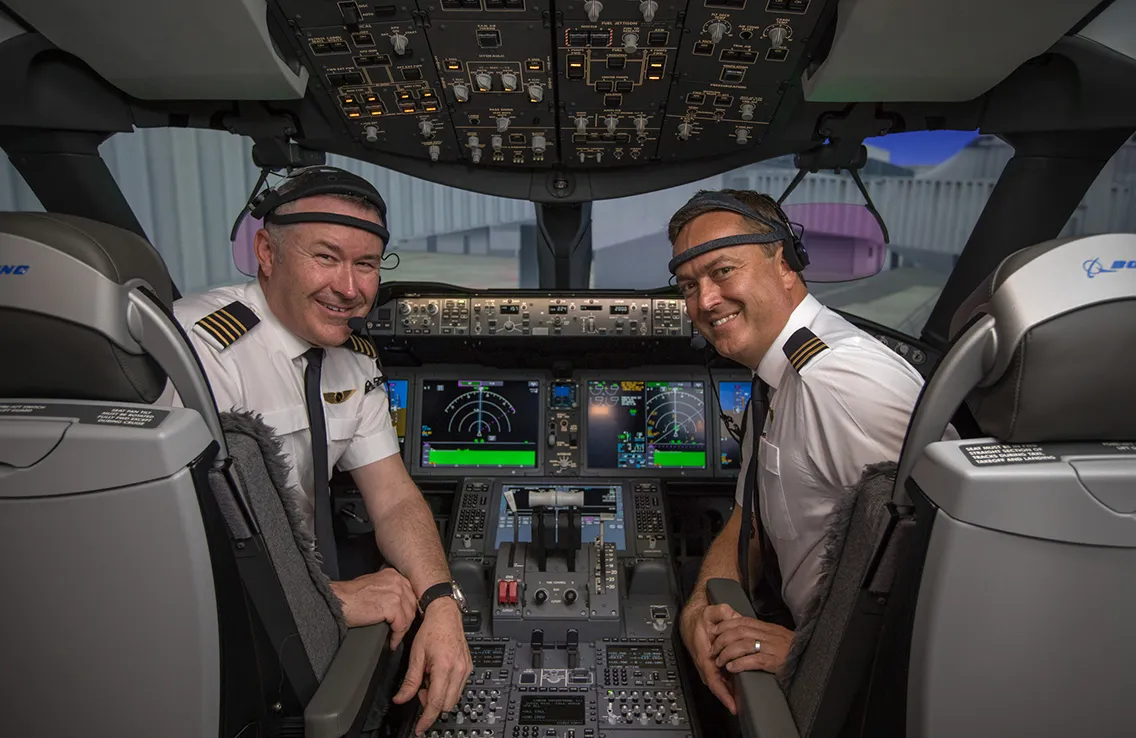
Qantas to monitor pilots on record-breaking trial flights
Oct 17, 2019

Qantas is implementing a comprehensive monitoring system for pilots during its record-breaking trial flights, aimed at enhancing safety and operational efficiency. This initiative involves the use of advanced technology to track pilot performance, fatigue levels, and decision-making processes in real-time. By analyzing data collected during these trials, Qantas seeks to identify areas for improvement and ensure that pilots are well-prepared for long-haul flights. The program reflects the airline's commitment to maintaining high standards of safety and optimizing the overall flying experience for both crew and passengers, paving the way for future innovations in aviation.
In an unprecedented move, Qantas has announced its plans to monitor pilots during record-breaking trial flights as part of its commitment to safety and efficiency in aviation. This initiative comes as the airline prepares for its ambitious long-haul flight routes, which aim to reduce travel time significantly. By employing advanced monitoring systems, Qantas aims to enhance pilot performance and ensure adherence to safety protocols during these extended journeys.
Understanding the Monitoring Process
The monitoring system implemented by Qantas involves real-time data collection from various flight parameters. This includes tracking flight paths, fuel consumption, and pilot performance metrics. The data collected will be analyzed to improve operational efficiency and ensure that pilots are adhering to best practices during these record-breaking flights.
Key aspects of the monitoring process include:
| Monitoring Aspect | Description |
|---|---|
| Flight Path Tracking | Real-time monitoring of the aircraft's route to optimize navigation and fuel efficiency. |
| Fuel Consumption Analysis | Tracking fuel usage to identify potential savings and enhance sustainability efforts. |
| Pilot Performance Metrics | Evaluating decision-making and adherence to safety protocols to promote best practices in aviation. |
Benefits of Pilot Monitoring
The implementation of a comprehensive pilot monitoring system offers several advantages for Qantas and its passengers. By focusing on safety, efficiency, and performance, the airline can enhance the overall flying experience. Here are some of the key benefits:
- Increased Safety: By closely monitoring pilot actions and decisions, Qantas can ensure that all safety protocols are followed rigorously, minimizing the risk of human error.
- Enhanced Training: Data collected during flights can be used to provide targeted training for pilots, focusing on areas where improvements can be made.
- Operational Efficiency: Monitoring fuel consumption and flight paths allows for better planning and execution of flight routes, which can lead to significant cost savings.
Challenges and Considerations
While the benefits of monitoring pilots during record-breaking trial flights are evident, there are also challenges that Qantas must navigate. Privacy concerns, data management, and the potential for over-monitoring are significant considerations that the airline must address.
Key challenges include:
| Challenge | Description |
|---|---|
| Privacy Concerns | Pilots may feel that constant monitoring infringes on their privacy and autonomy. |
| Data Management | Handling vast amounts of data requires robust systems and processes to ensure accuracy and security. |
| Over-Monitoring | Excessive monitoring could lead to stress among pilots, potentially affecting performance negatively. |
Looking Toward the Future
As Qantas embarks on this innovative approach to pilot monitoring, it sets a precedent in the aviation industry. The insights gained from these trial flights could potentially reshape how airlines approach pilot training and safety protocols in the future.
By focusing on data-driven decision-making, Qantas can lead the charge toward a more efficient and safer flying experience for everyone. The airline's commitment to integrating technology in monitoring pilot performance speaks to a broader trend in the aviation sector, where safety and efficiency are paramount.
Conclusion
Qantas's initiative to monitor pilots during record-breaking trial flights is a bold step forward in aviation safety and operational efficiency. With a focus on real-time data collection and analysis, the airline aims to create a safer flying environment while also improving pilot performance. As this initiative unfolds, it will be crucial for Qantas to address the challenges involved and ensure that the benefits outweigh any potential drawbacks. The future of aviation looks promising with such innovations paving the way for safer and more efficient travel.
Related Articles

Explore Thailand: The Best Islands to Visit for Paradise, Adventure, and Relaxation

The Ultimate Guide to the Best Islands in Thailand for Your Next Getaway

Do babies need passports? How to get a passport for a newborn

How to get a U.S. passport fast: here’s how to expedite the process

What is Mobile Passport Control: 5 reasons why you should use it

SENTRI vs. Global Entry: A detailed guide

Do you need a passport to go to the Bahamas? Let’s find out

Do you need a passport to go to Mexico? A detailed guide

Do you need a passport to go to Canada? We got the answer

Do You Need a Passport for a Cruise: An Essential Travel Guide

Booster Seat Requirements: All the Rules to Follow in Your Rental Car

What Are the World’s Most Powerful Passports, and How Does Yours Rank?

How to Take a Passport Photo at Home: A Helpful Guide

You've got to have heart! Southwest's new livery

Your opinion: Should water be free on low cost carriers?

Young women bolder than guys as solo travellers
